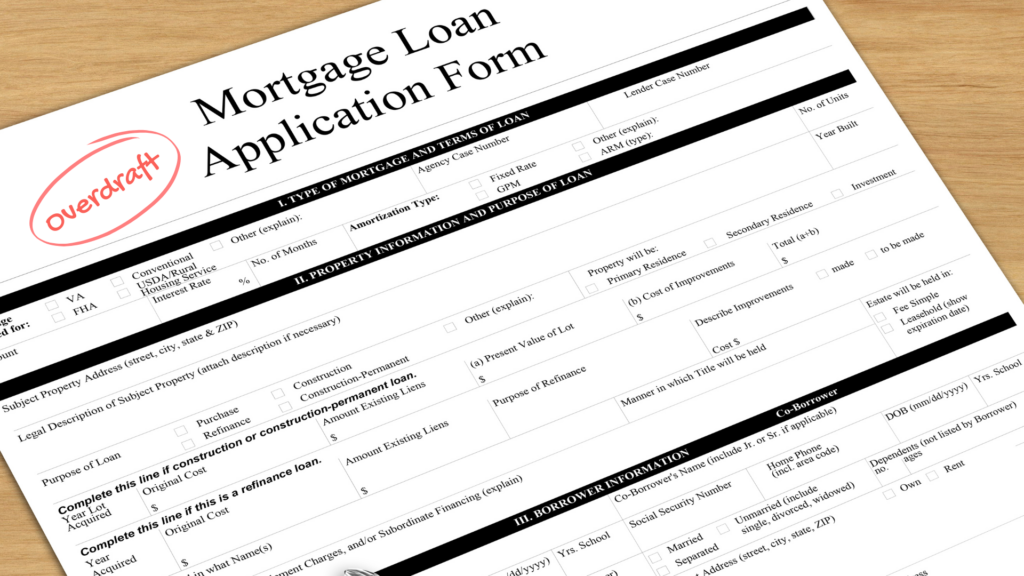- What is a 5.5 Times Salary Mortgage?
- How Much Can I Borrow with a 5.5x Salary Mortgage?
- How To Get a 5.5x Salary Mortgage?
- Can You Get a Mortgage 5.5x Your Salary with Bad Credit?
- How Does a 5.5x Income Multiple Work for Joint Mortgages?
- Is a Bigger Deposit Better for a 5.5 Times Salary Mortgage?
- Can Self-Employed Get a Mortgage 5.5x Salary?
- What If Youâre an Older Borrower?
- Which Lenders Offer 5.5 Times Salary Mortgages?
- How to Boost Your Chances of Approval
- Key Takeaways
- The Bottom Line
Mortgages 5.5 Times Salary: Everything You Need To Know

Buying a home in the UK has become tougher, with property prices often rising faster than wages.
For many, getting a mortgage that covers the cost of their dream home can feel challenging.
Most UK lenders offer loans based on 4.5 times your annual income. But what if you need more?
A 5.5 times salary mortgage could be the answer, letting you borrow more if you meet certain criteria.
This guide explains what a 5.5 times salary mortgage is, how you can qualify, and whether it’s the right choice for your financial situation.
What is a 5.5 Times Salary Mortgage?
A 5.5 times salary mortgage lets you borrow 5.5 times your annual income.
For example, if you earn £30,000 a year, you could borrow up to £165,000. This is handy if you want a bigger house or live somewhere expensive.
But, these mortgages are harder to get because they’re riskier for lenders. You might need to jump through a few more hoops to get one.
How Much Can I Borrow with a 5.5x Salary Mortgage?
The amount you can borrow is straightforward to calculate: simply multiply your annual salary by 5.5.
Here’s an example of how much you could borrow based on different income levels:
| Annual Salary | 5.5 Times Salary Mortgage |
|---|---|
| £20,000 | £110,000 |
| £30,000 | £165,000 |
| £60,000 | £330,000 |
| £80,000 | £440,000 |
| £100,000 | £550,000 |
These numbers give you an idea, but the actual amount you can borrow also depends on your credit score, deposit size, and financial situation.
Before applying for a 5.5x salary mortgage, it’s important to think about whether you can comfortably afford the repayments, especially if interest rates go up.
It’s important to make sure you can comfortably afford the repayments, especially if interest rates rise. For a more accurate estimate, use a mortgage affordability calculator.
How To Get a 5.5x Salary Mortgage?
Getting a mortgage 5.5 times your salary isn’t easy. It could be more complex than a standard mortgage.
Lenders offering this option take on more risk, so they have strict criteria. Here’s what you’ll need:
- High Income. Most lenders ask for a combined annual income of at least £60,000, but some might set the bar higher, at £75,000 or more. This ensures you have enough income to handle repayments, even if things change.
- Large Deposit. Lenders often require at least a 15% deposit (85% LTV) for a 5.5 times salary mortgage. Some might even ask for a bigger deposit if other parts of your financial profile are seen as risky.
- Strong Credit History. A high credit score is essential. Lenders want to see a history of responsible borrowing and on-time payments. Even small issues on your credit report can make it harder to get this kind of mortgage.
- Stable Employment. Lenders prefer applicants with stable, well-paying jobs. Those in professions like medicine, law, or finance might find it easier to qualify because these jobs are seen as lower risk due to job security and steady income.
- Low Debt-to-Income Ratio. Lenders will check your current debts compared to your income. Most prefer a debt-to-income (DTI) ratio of 36% or lower. A lower DTI shows you have enough income left after paying existing debts, making it easier to manage a mortgage. It’s a good idea to calculate your DTI ratio beforehand to see where you stand.
- Supplemental Income. Some lenders might let you include extra income, like bonuses, overtime, rental income, or certain benefits. This could help you reach the income level needed for a 5.5 times salary mortgage, but not all lenders will count this income.
Can You Get a Mortgage 5.5x Your Salary with Bad Credit?
Getting a 5.5 times salary mortgage with bad credit is tough, but not impossible.
Bad credit might come from past issues like missed payments, defaults, or even bankruptcy.
Lenders are usually cautious about offering high multiple mortgages to people with bad credit because it’s a higher risk.
But, some specialist lenders might still consider your application if you can show that your finances have improved and you have a stable income.
To offset the risk, these lenders might ask for:
- A bigger deposit. You might need to save up at least 20% of the property or more money before you buy a home.
- A higher income. You may need to show a higher income than usual to convince the lender that you can repay the loan.
- Stricter affordability checks. The lender will look really closely at your money situation and ask questions about any past problems.
Working with a mortgage broker who specialises in bad credit mortgages can really help. They can point you to lenders who are more flexible and help you present your application in the best way.
How Does a 5.5x Income Multiple Work for Joint Mortgages?
Getting a mortgage with a friend or partner can mean you can borrow more money.
If you both work, you can usually borrow more than if you were on your own. For example, if you both earn £35,000 a year, you might be able to borrow up to £385,000 together.
You don’t just have to be two people – some lenders let up to four people share a mortgage.
This is great for families or friends who want to buy a place together. But remember, you’re all responsible for paying it back, so things can get tricky if someone’s money situation changes.
When you share a mortgage, lenders look at:
- Combined Debt-to-Income Ratio. They add up your incomes and debts to see if you can afford the mortgage.
- Your credit scores. They check everyone’s credit history. If one person has bad credit, it could affect you all.
- Type of property. Lenders have different rules for houses and flats.
Is a Bigger Deposit Better for a 5.5 Times Salary Mortgage?
Yes, a bigger deposit is definitely better when you’re applying for a mortgage, especially one based on a 5.5 times salary.
Here’s why:
- You’ll get better interest rates. A larger deposit lowers your loan-to-value (LTV) ratio, which can help you get more competitive interest rates. This means lower monthly repayments and a cheaper mortgage overall.
- You’re safer. With a bigger deposit, you own more of your property from the start, which reduces the risk of negative equity—when your home’s value drops below what you owe on the mortgage.
- Increased Lender Confidence. Banks and building societies are happier to lend you money if you have a bigger deposit.
But if it takes too long to save a bigger deposit, property prices might go up, which could offset the benefits.
It’s important to balance saving with the current property market and your own situation.
Can Self-Employed Get a Mortgage 5.5x Salary?
Yes, you can get a mortgage that’s 5.5 times your pay even if you’re self-employed, but it’s a bit trickier.
Lenders often see self-employed applicants as higher risk because your income might vary.
Because of this, they’ll usually ask for more proof of your income and financial stability.
Here’s what you’ll typically need:
- 2 to 3 Years of business accounts verified by an accountant
- SA302 forms or summaries of your income from HMRC to show your earnings over the last few years.
- Strong Credit History
It’s a good idea to talk to a mortgage broker if you’re self-employed. They know which lenders are happy to deal with people like you.
What If You’re an Older Borrower?
If you’re older and want a big mortgage, it can be harder, but it’s not impossible. Lenders have a cut-off age for when you have to pay the mortgage back, usually between 70 and 85.
But some lenders might say yes if you can show you’ll have enough money when you stop working.
Here’s what you might need to consider:
- Your pension – Lenders will want to know how much money you’ll get when you stop working.
- Paying it back quicker – You might have to pay the mortgage back faster, which means bigger payments each month.
- Finding the right lender – Some lenders are better than others for older people, especially if you already own a house or have a good plan for your money when you retire.
If you’re an older borrower thinking about a 5.5 times salary mortgage, it’s a good idea to get professional advice, as the rules and lender attitudes can vary a lot.
Which Lenders Offer 5.5 Times Salary Mortgages?
Not all UK lenders offer 5.5 times salary mortgages, but some do under certain conditions. Here are a few examples:
- Barclays – Offers up to 5.5 times salary mortgages, mainly to professionals with a combined income of over £75,000. They’re known for being competitive in this market.
- Halifax – Provides 5.5 times salary mortgages, usually requiring an LTV of less than 75% and a combined income over £75,000, with a borrowing cap of £750,000.
- Virgin Money – Offers 5.5 times salary mortgages, typically for those earning over £75,000 a year.
- Accord Mortgages – Offers 5.5 times salary mortgages, but you’ll need a combined income of at least £60,000.
- Metro Bank – May offer 5.5 times salary mortgages, but their criteria can be more flexible and assessed on a case-by-case basis.
Each lender has its own criteria, so it’s important to compare options. A mortgage broker can help match you with the best lender for your situation.
How to Boost Your Chances of Approval
Getting approved for a 5.5 times salary mortgage takes some careful planning. Here are a few tips to improve your chances:
- Save a Bigger Deposit. If you can save more than the minimum deposit, it will lower your loan-to-value (LTV) ratio, making your application more attractive to lenders. A bigger deposit might also help you get better interest rates, reducing your overall mortgage costs.
- Improve Your Credit Score. Your credit score is crucial for mortgage approval. Regularly check your credit report for errors, pay off existing debts, and avoid taking on new credit before applying.
- Reduce Your Debt. Paying off existing debts can improve your debt-to-income ratio, making you a more appealing borrower. Lenders want to see that you can manage current debts along with the mortgage, so reducing what you owe can strengthen your application.
- Get Your Financial Documents Ready. Ensure you have all your paperwork in order, including payslips, bank statements, and any other financial records that show your income and financial stability. If you’re self-employed, ensure your accounts and tax returns are up to date.
- Work with a Mortgage Broker. A broker who specialises in high-income multiple mortgages can be a big help. They can find lenders who are more likely to offer 5.5 times salary mortgages and guide you through the application process.
Key Takeaways
- A 5.5 times salary mortgage lets you borrow more, but it’s harder to qualify because lenders have stricter criteria.
- You’ll generally need a high income, a 15% deposit, a strong credit score, and a low debt-to-income ratio (below 36%).
- If you have bad credit, it’s tough to get a 5.5 times salary mortgage, but some specialist lenders might consider you with a larger deposit and stricter checks.
- Joint mortgages with a partner or friend can boost your borrowing power, but all applicants’ finances will be closely assessed.
- Older borrowers and self-employed people can qualify too, but they might face extra scrutiny and need to provide detailed financial records.
The Bottom Line
Getting a mortgage that’s 5.5 times your pay is possible, but it’s not easy. You’ll need to meet some tough rules.
If you earn a lot of money, have a steady job, or can put down a big deposit, you’ve got a better chance.
But it’s important to think about if you can really afford to borrow that much money. Talk to a mortgage expert to help you figure out what’s best for you.
To make the right choice and avoid unnecessary stress, get in touch with us. We’ll connect you with a mortgage expert who can help you find the perfect deal.
Get Matched With Your Dream Mortgage Advisor...

Frequently asked questions
What is the maximum age for a 5.5 times salary mortgage?
Age caps typically range from 70 to 85. If your mortgage term extends into retirement, you’ll need to show sufficient income to cover repayments during those years.
Can I remortgage to a mortgage 5.5x my salary?
Yes, you can usually get a bigger mortgage when you remortgage. But it depends on your money situation and what the lender thinks.
They’ll look at your income, credit score, debts, and how much your house is worth.
To get a really big mortgage, you usually need to earn a lot of money, have a good credit score, and not owe too much. It also helps if you own a big chunk of your house already.
It’s a good idea to talk to a mortgage expert. They can help you figure out your options and find the best deal.




